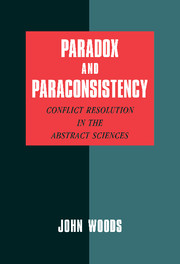1 - Conflict in the Abstract Sciences
Published online by Cambridge University Press: 05 June 2012
Summary
How can a philosophical enquiry be conducted without a perpetual petitio principii?
Frank Ramsey, The Foundations of Mathematics, 1931CONFLICT RESOLUTION
1905 was an intellectually eventful year. It saw the birth of Russell's “On Denoting” and Einstein's special theory of relativity, to say nothing of the founding of the Bloomsbury Group and the appearance of The Psychopathology of Everyday Life and the Binet Test. Relativity theory was attended by conflict right from the beginning, and barely a year passed before disconforming experimental evidence was unearthed. In one of the century's more alluring examples of a theory's resistance of empirical discouragement, relativity hung on until, in 1914–16, it received experimental confirmation strong enough to annul the Kaufmann deviations. While the new physics was awaiting empirical respectability, the foundations of geometry occasioned considerable contention. Frege and Hilbert saw things differently. They clashed over the nature and function of the geometric axioms. Frege saw the axioms as a reflections of conditions necessary for spatial experience, and so as synthetic propositions known a priori. For Hilbert, axioms are the theoretical constructions of the geometer, epistemically secure if consistent. On Hilbert's view, whether a geometric axiom strikes us as a priori true, or, for that matter, as a priori false, is a fact about us, not about geometry intrinsically. Axiom sets are consistent specifications of mathematically possible spaces, whose physical realization, or not, tells neither for nor against the axioms.
We have here two historically important cases of scientific disagreement in the twentieth century.
- Type
- Chapter
- Information
- Paradox and ParaconsistencyConflict Resolution in the Abstract Sciences, pp. 1 - 39Publisher: Cambridge University PressPrint publication year: 2002



